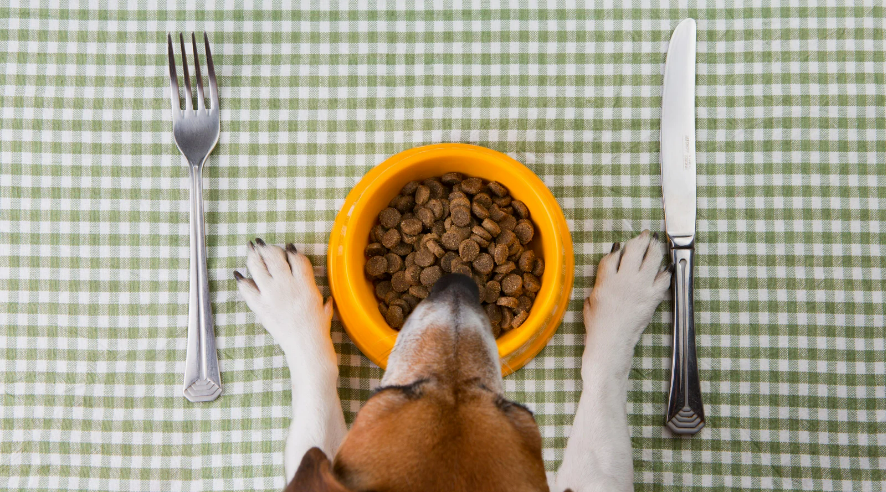Pet Food: The Benefits of Choosing the Right Type for Your Furry Friend
- 7 August 2022

As a pet owner, you understand the importance of feeding your furry friend the right type of food. Whether it's a cat, dog, rabbit, or any other type of pet, what they eat has a direct impact on their health and well-being. Choosing the right type of pet food can be a confusing and overwhelming task, but with a little bit of research, you can ensure that your pet is getting the nutrients they need to live a happy and healthy life.
Steps in Choosing the Right Type of Pet Food
The first step in choosing the right type of pet food is to understand the different types of food available. There are three main categories of pet food: dry, wet, and raw. Dry food is the most common type of pet food and is often the most economical choice. It's easy to store and is perfect for pets who like to nibble on their food throughout the day. Wet food is a great choice for pets who need a higher moisture content in their diet. This type of food is often more appealing to pets and can help keep them hydrated. Raw food is a newer type of pet food that is becoming more popular. This type of food is made with raw, whole food ingredients and is designed to mimic the diet of a wild animal.
When choosing a type of pet food, it's important to consider your pet's individual needs. For example, if your pet has a sensitive stomach, you may want to choose a food that is low in filler ingredients and high in quality protein. If your pet is overweight, you may want to choose a food that is lower in calories and fat. If your pet has a specific health condition, such as diabetes or kidney disease, you may need to choose a food that is designed for that condition.
Another important factor to consider when choosing pet food is the quality of the ingredients. You want to choose a food that is made with high-quality proteins, like chicken, fish, or lamb, and that includes plenty of fresh fruits and vegetables. You should also avoid foods that contain by-products, fillers, and artificial preservatives. These ingredients can be harmful to your pet's health and can cause digestive problems.
Finally, it's important to choose a pet food that is appropriate for your pet's age, size, and activity level. Puppies and kittens have different nutritional needs than adult pets, and senior pets have different needs than younger pets. You should also choose a food that is appropriate for your pet's size and activity level. For example, if your pet is a small, indoor cat, you may want to choose a food that is lower in calories and fat. If your pet is an active, working dog, you may want to choose a food that is higher in protein and calories.
Benefits of High-Quality Proteins and Whole Food Ingredients
As a pet owner, you understand that the quality of the food you feed your furry friend has a direct impact on their health and well-being. Choosing a pet food that is made with high-quality proteins and whole food ingredients can provide your pet with the nutrients they need to thrive. In this article, we'll explore the benefits of choosing pet food with high-quality proteins and whole food ingredients and why they are essential for your pet's health.
High-quality proteins are an essential component of a pet's diet. Proteins are the building blocks of the body and are crucial for maintaining and repairing tissues, supporting a healthy immune system, and building muscle mass. When choosing a pet food, it's important to choose a food that is made with high-quality proteins, like chicken, fish, or lamb. These proteins are more easily digested and provide your pet with the nutrients they need to maintain a healthy body.
Whole food ingredients, like fruits and vegetables, are also essential for your pet's health. These ingredients provide your pet with important vitamins, minerals, and antioxidants that can help support a healthy immune system, improve digestive health, and promote healthy skin and coat. When choosing a pet food, look for a food that is made with a variety of fresh fruits and vegetables, like carrots, apples, and spinach.
It's also important to avoid pet foods that contain by-products, fillers, and artificial preservatives. By-products are the leftovers from the processing of human food and can contain a variety of unwanted ingredients, like feathers and beaks. Fillers, like corn and wheat, can be difficult for pets to digest and can cause digestive problems. Artificial preservatives, like BHA and BHT, can be harmful to your pet's health and can cause a variety of health problems, like cancer and liver disease.
When choosing a pet food, it's also important to choose a food that is appropriate for your pet's age, size, and activity level. Puppies and kittens have different nutritional needs than adult pets, and senior pets have different needs than younger pets. You should also choose a food that is appropriate for your pet's size and activity level. For example, if your pet is a small, indoor cat, you may want to choose a food that is lower in calories and fat. If your pet is an active, working dog, you may want to choose a food that is higher in protein and calories.
In conclusion, choosing the right type of pet food is an important decision for pet owners. By understanding the different types of food available, considering your pet's individual needs, choosing a food with high-quality ingredients, and choosing a food that is appropriate for your pet's age, size, and activity level, you can ensure that your pet is getting the nutrients they need to live a happy and healthy life. So take the time to research and choose the best food for your furry friend, and they will thank you with love and loyalty.




